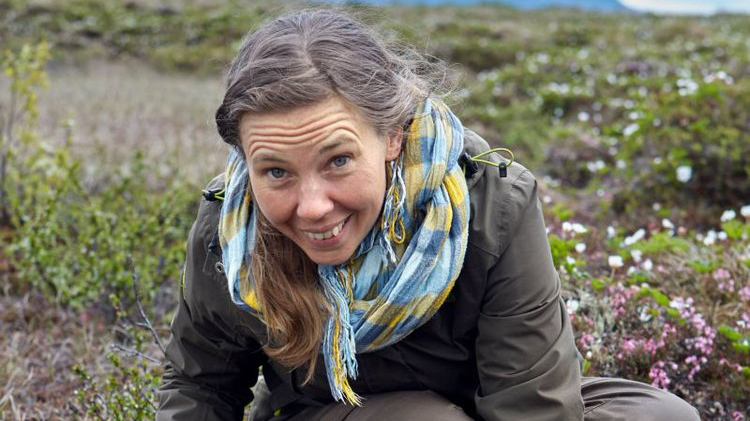The time when Scientists were performing secret experiments in dark cellars and tall ivory towers is long gone. Today, academic researchers and laymen often investigate research questions together using Citizen Science and other forms of co-creation activities. These collaborative processes are often described as win-wins, but who is winning what?

A simple idea
In 2010, I was working on a laborious experiment on the decay of plant material, i.e decomposition. I had to fill hundreds of plastic mesh bags with plant material, close them carefully, go out and bury them in soil, wait three months, dig them up and weigh them to measure decay rates. While complaining to one of my colleagues during a fika break, I realized that the tea bags soaking in our steaming cups were the perfect equivalent to the bags I had been forced to make by hand in the lab. Tea is made of plant material, and so much time and money – two scarce resources as far as research goes – could be saved if one could simply bury tea bags and study their decomposition.
Since our method was so accessible and fun, we then called on members of the public to help us collect data for the database.
One thing led to another, and in 2014 we started measuring decomposition all over the world with the help of our new method, the Tea Bag Index (TBI). We aimed to create a database that could validate decomposition models. Since our method was so accessible and fun, we then called on members of the public to help us collect data for the database. Since then, people from all around the world have buried tea and our database now contains measurements from roughly 4,000 locations!
Challenging but rewarding!
However, what seemed easy (burying and digging up tea bags) turned out to be quite challenging. Bags were lost in fires, floods and due to termites, boars, apes, dogs, mice and human activities like mowing or ploughing. Some people reported in the wrong weight units, others were uncertain about what type of tea they should use, or where they buried their tea bags. Many participants struggled to understand what decomposition is and why it is important at all.
I am grateful for every single person participating, not just for contributing data but for supporting and motivating me as a researcher.
But the enthusiasm over the years has been overwhelming, and I am grateful for every single person participating, not just for contributing data but for supporting and motivating me as a researcher. The project has been incredibly rewarding; rewarding scientifically as the Tea Bag Index made it possible to gain new and better knowledge about decomposition. Rewarding for me as a person, as I got inspired and encouraged by participants at times when I was struggling with the project. I especially want to mention the pupils who were so enthusiastic about participating in research and learning about the scientific process and soil health.
Citizen Science connects people from all different backgrounds and each of them can learn something from participating, whether they are academic researchers or members of the public.
A citizen science-based tool for soil health
What I really like about the Tea Tales project in particular, and Citizen Science in general, is that it connects people from all different backgrounds and each of them can learn something from participating, whether they are academic researchers or members of the public.
Now it is almost time to launch our new platform, on which the database has been developed into an interactive map-tool, and where we will highlight stories from a wide range of participants – sea turtle-researchers from the Netherlands, soil chemists from Italy and pre school pupils from Sweden.
It has been an incredible journey and I want to encourage all researchers thinking about engaging in citizen science to try it out in your projects. It will not be easy, but science never is. And along the way, you will learn so much about your own subject and how to make it accessible and engaging to non-academics. You will also play an important part in opening up science and research to a broader public.
Judith Sarneel
Associate professor at Department of Ecology and Environmental Science at Umeå University
Judith Sarneel is an Ecologist at Umeå University with almost ten years of experience in citizen science. By sharing her experiences she hopes to show that citizen science does not just benefit and empower citizens, but can be equally beneficial to the academics involved. Umeå University was one of the partners in the creation of the Swedish citizen science portal, www.medborgarforskning.se.
Umeå universitet har varit medlemmar i VA sedan 2011. Läs mer om organisationen här.
